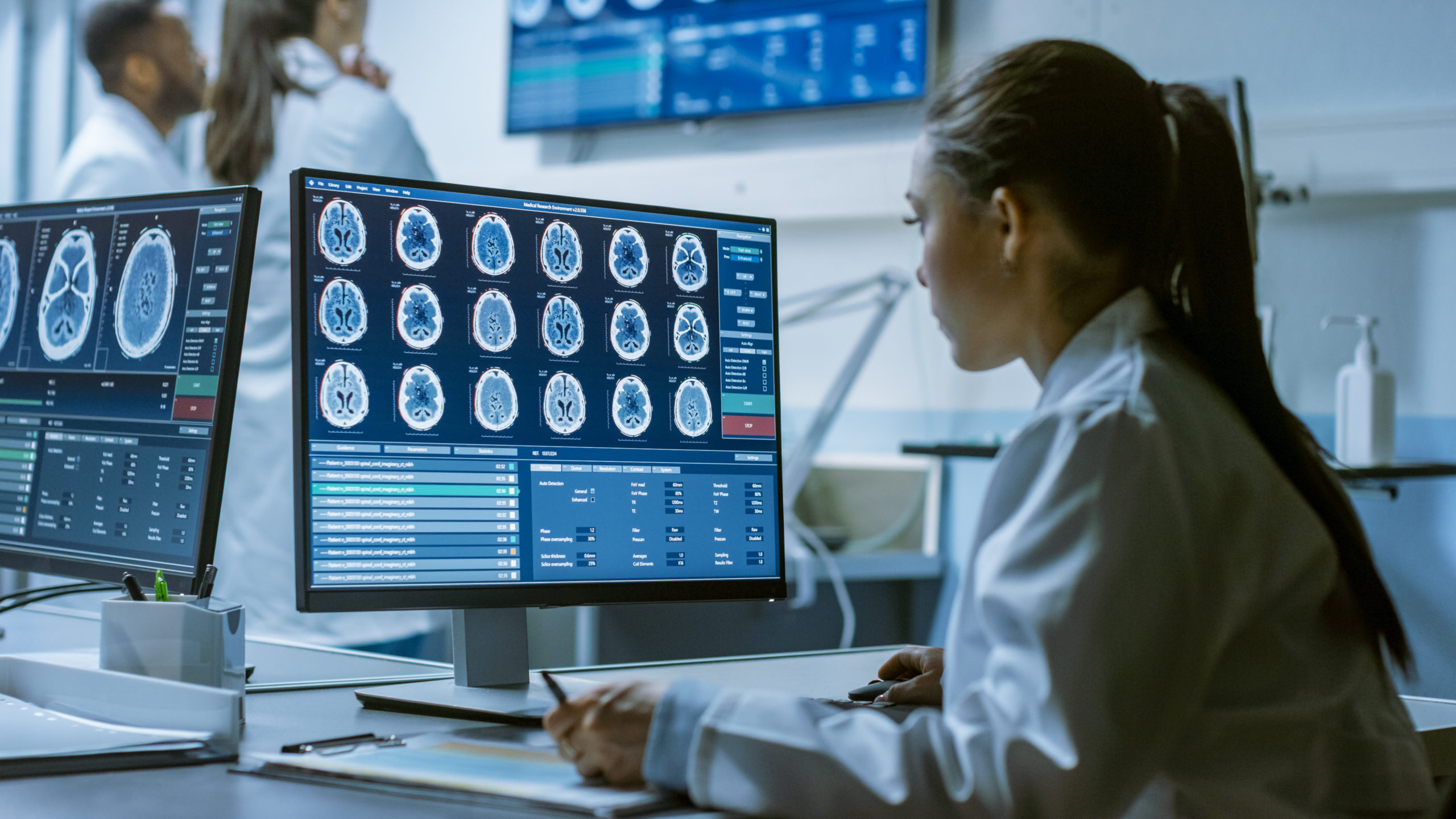In the ever-evolving healthcare landscape, maintaining and enhancing medical staff competency is paramount. Innovative technologies have opened new avenues to achieve this objective effectively. These technologies and digital tools have revolutionized how healthcare institutions educate, train, and empower their medical staff, ensuring they stay up-to-date with the latest advancements in medicine and patient care.
The healthcare industry is characterized by its dynamic nature, with medical knowledge and best practices constantly evolving. Medical professionals must stay informed about the latest medical research, treatments, and protocols to deliver the highest quality care and ensure patient safety.
However, traditional continuing education and training methods can be time-consuming, costly, and logistically challenging. This is where technology comes into play, offering digital solutions to streamline and enhance medical staff competency.
The Role Of Technology In Medical Staff Competency
Technology in healthcare is a broad term encompassing a wide range of tools and solutions that contribute to medical staff competency. Now, you’ll explore the various ways in which technology can play a pivotal role in this domain:
- Healthcare Learning Management Systems (LMS)
Healthcare LMS are powerful platforms that enhance accessibility and flexibility in medical staff education. They break down geographical and time constraints, allowing healthcare professionals to access training materials from anywhere and at their own pace. With personalized learning paths tailored to individual roles and expertise levels, healthcare LMS ensures that staff receive targeted and relevant content, optimizing the efficiency of their training efforts.
Additionally, these platforms offer real-time progress tracking and assessments, enabling staff and managers to monitor competency development effectively. By providing cost-effective education and facilitating quick updates to reflect the latest medical research and protocols, healthcare LMS plays a vital role in improving patient care outcomes and the continuous professional growth of medical staff.
- Telemedicine And Remote Learning
The emergence of telemedicine has reshaped patient care and ushered in a new era of remote learning and training for medical professionals. Virtual conferences, webinars, and training sessions have become accessible to healthcare practitioners without the need for physical presence. This transformative approach not only expands access to vital educational content but also slashes the costs and time associated with travel. Geographical barriers dissolve, allowing healthcare professionals from diverse locations to collaborate seamlessly and access expert insights effortlessly.
Moreover, telemedicine-driven remote learning proves to be a cost-effective and time-efficient solution. It eliminates travel expenses, benefiting individuals and healthcare institutions while accommodating medical practitioners’ demanding schedules. As telemedicine continues integrating with medical education, it is poised to revolutionize how healthcare professionals access training and knowledge-sharing opportunities, enhancing their competency and patient care capabilities.
- Simulation And Virtual Reality
Simulation and virtual reality (VR) technologies have ushered in a transformative medical training and skill development era. These cutting-edge tools provide healthcare professionals with immersive, lifelike simulations of medical procedures, surgeries, and patient interactions. Within these risk-free environments, practitioners can refine their skills, make crucial decisions, and bolster their confidence before encountering actual patients.
The strength of simulation and VR lies in their ability to replicate complex medical scenarios with remarkable fidelity, enabling healthcare providers to practice critical techniques, refine their responses, and cultivate essential soft skills. This immersive and hands-on learning approach enhances technical proficiency and fosters teamwork, empathy, and effective communication, all vital elements in delivering top-tier patient care.
- Mobile Apps And Point-Of-Care Resources
Mobile apps have revolutionized the way medical professionals access vital information and resources. These apps provide instant access to medical knowledge, guidelines, and diagnostic tools, serving as indispensable references during patient care. With a simple tap on their smartphones or tablets, healthcare practitioners can retrieve the latest information, check drug interactions, consult treatment guidelines, and utilize medical calculators. This accessibility significantly enhances the efficiency and accuracy of patient care, enabling healthcare professionals to make well-informed decisions promptly.
Moreover, mobile apps are regularly updated to reflect the most current evidence-based practices, ensuring that medical staff are always equipped with the latest information, ultimately contributing to improved patient outcomes.
- Artificial Intelligence (AI) And Machine Learning
Artificial Intelligence (AI) and machine learning have catalyzed a remarkable transformation in healthcare, particularly in diagnostics and treatment planning. These technologies give medical staff an unprecedented advantage by swiftly and precisely analyzing complex medical data, unveiling intricate patterns, and enhancing informed decision-making.
In diagnosis, AI-driven tools are adept at recognizing subtle patterns within patient records and medical images, thereby significantly elevating diagnostic accuracy. Medical professionals can rely on these technologies to promptly and accurately identify diseases and medical conditions, ultimately expediting treatment initiation and improving patient outcomes.
- Big Data Analytics
Big Data Analytics has become a cornerstone in healthcare, offering institutions a powerful means to enhance medical staff performance and patient care outcomes. Organizations gain invaluable insights by collecting and analyzing a wealth of data, including patient outcomes, treatment effectiveness, and staff competency.
These insights empower healthcare institutions to identify areas for improvement and implement tailored training programs, fostering continuous enhancement in medical staff competency. This data-driven approach optimizes medical professionals’ performance and ensures that patients receive the highest quality of care, thus advancing healthcare standards and patient outcomes.
- Wearable Technology
Wearable technology, encompassing devices like smartwatches and fitness trackers, is becoming a pivotal asset in nurturing the competency and well-being of medical staff. These devices instill a culture of health within the medical community by monitoring vital signs, tracking physical activity, and delivering health-related alerts. Wearables empower healthcare professionals to proactively manage their physical and mental well-being, ensuring they are in prime condition to provide top-tier patient care.
By setting an example of health-consciousness, medical staff inspire a broader culture of wellness among peers and patients alike. This comprehensive approach benefits individual healthcare professionals and strengthens the competency and resilience of the medical workforce, ultimately enhancing patient care outcomes.
Implementation And Adoption Challenges
While technology offers numerous benefits for boosting medical staff competency, it also presents certain challenges that healthcare institutions must address:
- Technology Integration
Integrating various technologies into existing healthcare systems can be a complex and multifaceted challenge. Many healthcare institutions have legacy systems that may not be readily compatible with new technologies. Ensuring seamless operation requires a robust IT infrastructure capable of handling the demands of these modern tools.
Moreover, clear integration strategies must be in place to connect disparate systems, streamline data flow, and prevent information silos. Successful integration often necessitates collaboration between IT teams, healthcare administrators, and technology providers to ensure that all components work harmoniously to support medical staff competency initiatives.
- Training And Support
The effective use of new technologies by medical staff relies heavily on comprehensive training and ongoing support. Healthcare institutions must invest in training programs catering to their staff’s different learning styles and competency levels. Training should not be a one-time event but an ongoing process that evolves with technology updates.
Furthermore, institutions should establish robust support mechanisms, such as help desks and dedicated support teams, to assist medical staff when they encounter technical challenges or require clarification on using these tools. Adequate training and support are fundamental in maximizing the benefits of technology adoption while minimizing disruptions to daily healthcare operations.
- Data Security And Privacy
As technology usage in healthcare proliferates, ensuring the security and privacy of patient data becomes a paramount concern. Healthcare organizations must implement stringent security measures to safeguard sensitive information from unauthorized access, breaches, and cyberattacks. This includes encryption, access controls, audit trails, and regular security assessments.
Compliance with data protection regulations, such as the Health Insurance Portability and Accountability Act (HIPAA) in the United States or the General Data Protection Regulation (GDPR) in Europe, is crucial. Healthcare institutions must also educate their medical staff about the importance of data security and privacy, instilling a culture of vigilance and responsibility to maintain patient confidentiality and trust.
- Cost Considerations
Adopting advanced technologies often involves significant upfront costs, including hardware, software, implementation, and training expenses. Healthcare institutions must carefully evaluate these technologies’ return on investment (ROI) to justify the expenditure. This entails conducting thorough cost-benefit analyses to assess the long-term financial implications and advantages.
Budgeting accordingly is essential, considering the initial costs and ongoing maintenance, upgrades, and support expenses. Effective cost management ensures that the institution can sustain its technology initiatives while allocating resources strategically to maximize medical staff competency and enhance patient care results.
While technology substantially boosts medical staff competency, healthcare institutions must address these implementation and adoption challenges comprehensively. Successful integration, ongoing training and support, robust data security measures, and prudent cost considerations are all crucial factors in leveraging technology effectively to enhance medical staff competency and improve patient care.
The Future Of Technology In Healthcare Competency
As technology advances, its role in boosting medical staff competency will become even more prominent. Integrating artificial intelligence, augmented reality, and other emerging technologies will further enhance training and skill development.
Embracing these technological advancements is essential for healthcare institutions to stay at the forefront of patient care and ensure their medical staff is fully equipped to meet the evolving healthcare demands.
Conclusion
Leveraging technology to boost medical staff competency is not limited to a single tool or platform but encompasses a wide range of digital solutions. These technologies empower medical professionals with accessible, personalized, and up-to-date resources, ultimately improving patient outcomes. While challenges exist, the benefits of technology adoption in healthcare far outweigh the obstacles. As the healthcare industry evolves, embracing technology-driven solutions will be pivotal in maintaining and advancing medical staff competency.



